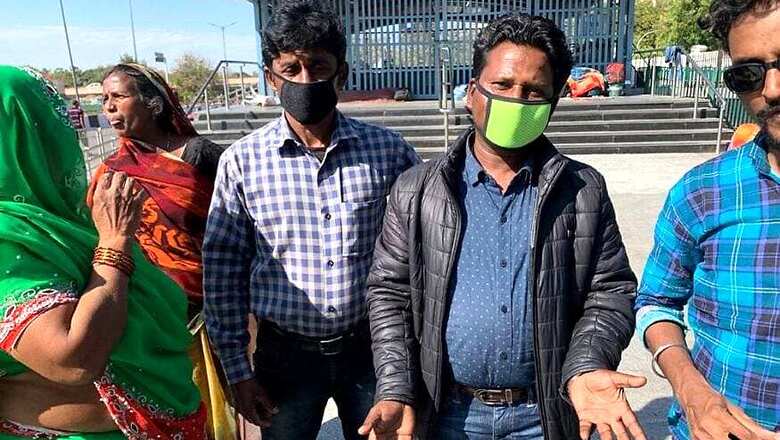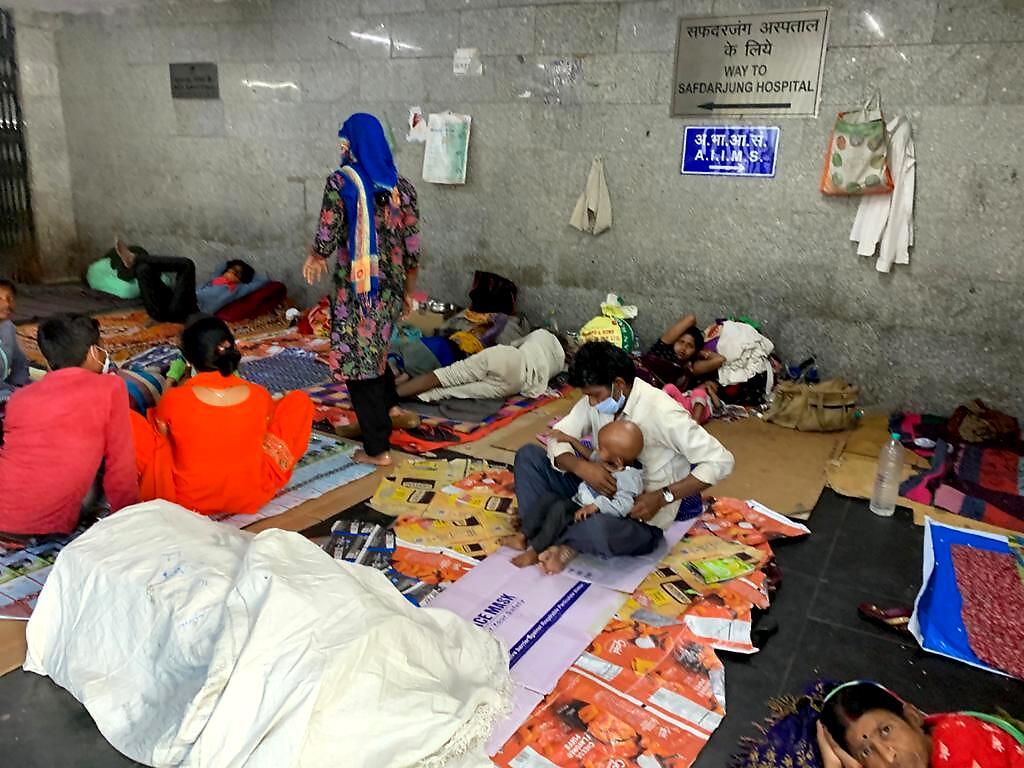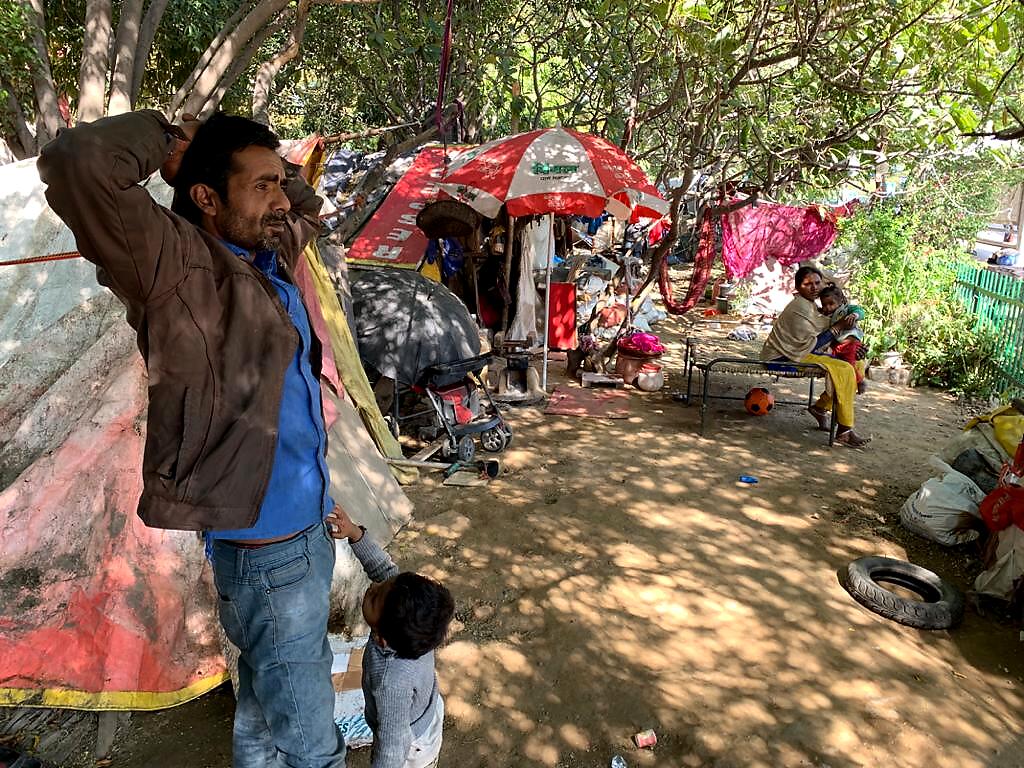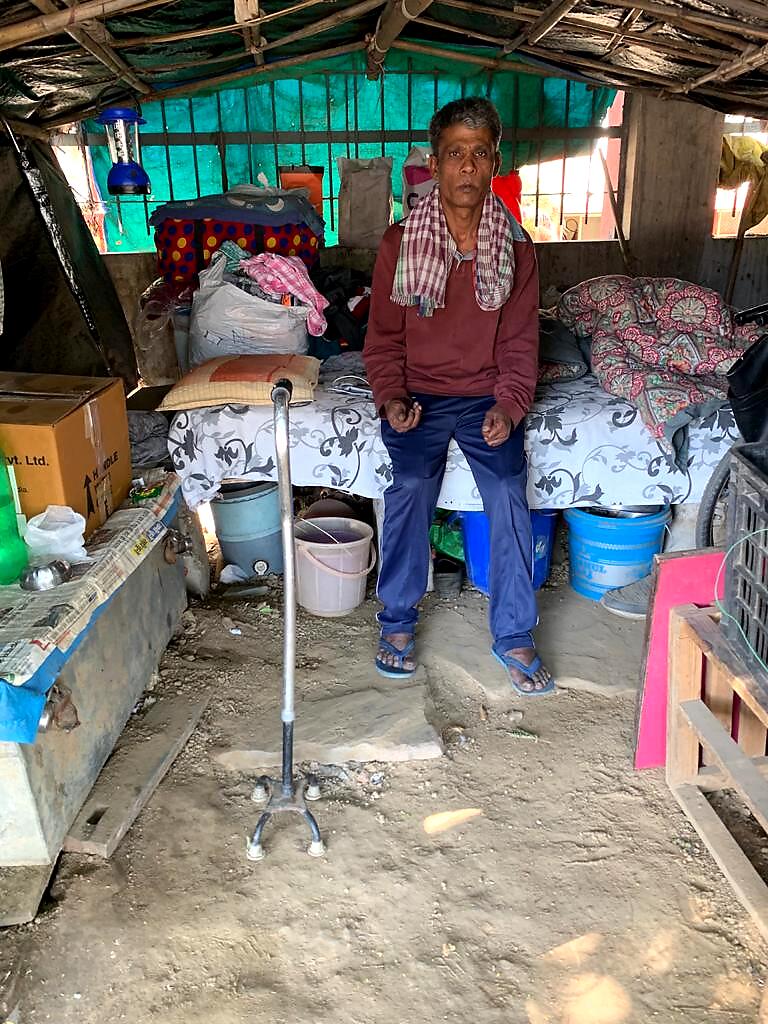
views
New Delhi: On the third day of the nationwide lockdown announced by Prime Minister Narendra Modi, News18 visited the two premier government hospitals in the city — AIIMS and Safdarjung Hospital —where thousands of people from across the country come daily for treatment, to understand how the three-week long curfew, announced on March 24 to halt the spread of COVID-19, has affected the medical visitors here.
News18 found both the patients and their attendants, most of who are poor and live on the nearby footpaths, in extremely desperate situations. Those who had no choice but to stay with their family members getting treatment at the hospital said that ever since the lockdown annoucement, police wasn’t allowing NGOs and private individuals to set up langars here. Most people, for whom these charity kitchens are their only source of two square meals, had not eaten for the past three days.
Those who wanted to leave couldn’t because all trains and buses have been cancelled. People claimed that private ambulances, which are the only vehicles being allowed on roads in the country, were charging thousands of rupees to drop patients and their families back home. One person from Bihar claimed that an ambulance had demanded Rs 50,000 to get his family back to hometown. A person from Amroha said he was asked to shell out Rs 15,000 by a private ambulance driver. A visibly ill patient from Moradabad said he was asked for Rs 20,000 for a ride back home.
Among them was Sonu Singh, who had come to AIIMS with his wife on March 22. She had been suffering from fever for the past few days. The two had somehow managed to make ends meet till the lockdown was announced. “A plate of rice that we used to get here for Rs 20 is now costing Rs 60. We don’t have so much money to spend on food. When we decided to return, there were no means. A private ambulance operator asked for Rs 20,000 to drop us home. My wife still has fever. We have no money now and we can’t afford a trip back home. Tell me, what will we do for the next three weeks?” Sonu asked.
Another visitor to the hospital was Nathuram whose child suffers from cancer in her leg. After she developed severe pain, her parents, who run a small shop back in Rajasthan’s Ajmer, brought her to Delhi on March 18. They got an appointment with a doctor at AIIMS’ OPD wing for last Monday. But on the designated day, Nathuram was told the OPD department wasn't going to be opened to public because the hospital was focusing all its resources to deal with coronavirus.

“We decided to wait for some time because making these long trips is painful for our daughter. We thought some avenue might open up in a day or two,” Nathuram said. But on Tuesday evening, after Modi announced the pan-India curfew, the AIIMS administration decided to shut down the OPD unit till further notice. Now Nathuram and his family are stuck on the footpath outside the premier hospital.
“It has been raining all these days and the pain in our daughter’s leg is only getting worse. We can’t keep her here in the open because it has been raining for the past few days. We can’t take her inside the hospital because the security staff chases us away. Tell me now what do we do? An ambulance driver told me that since he had been seeing us miserable for the past few days, he was willing to take us to our house for Rs 16,000. If we had that sort of money, why would we have come here at all? All our money is spent on her treatment,” Nathuram says, pointing towards his daughter who was moving with the help of a walker.
Man Singh, a farmer from Shahjahanpur in Uttar Pradesh, whose wife is suffering from pancreatic cancer, says, “Ek ek tukde ke liye taras rahe hain. Teen din se kuch nahi khaaya (We have been pining for a piece of bread. We haven’t eaten for the past three days).” His wife had a chemotherapy session a few days ago. Her next session is due on April 19. He is being asked for Rs 9,000 by an ambulance driver.
“Agar do din pehle bhi soochna mili hoti to hum log ghar ke liye rawaana ho jaate. Ab kahan jaayein? (Had we got this information even two days before the lockdown was announced, we would have made our way back home. But where do we go now?),” asked Murad Khushwaha from the same Shahjahanpur district.

His young daughter has just been diagnosed with cancer in her neck. She received one session of chemotherapy a few days go. Her next session is scheduled for Friday but after that Khushwaha doesn’t know where he’ll go.
“Earlier we could at least get some food from the langars, but since police isn’t allowing these kitchens to run, we don’t have anything to eat. I could have worked as a labourer and earned some money for us to be able to afford two meals but that is not going to happen because of lockdown. I have already taken a lot of money from people and am sinking in debt,” Khushwaha said.
“If somehow a langar is allowed here, police asks everyone to maintain one meter distance and stand in queue. But how can someone who has not eaten for three days keep distance from food? Police jitni mehnat danda maarne mein karti hai, utna hi sahyog agar khaana batwaane mein karde to koi khaali pet na soyega. Yahan corona aane se pehle hum bhookh se mar jaayenge. (The effort police is making in beating us up, had it made the same effort into organising community kitchens, nobody here would have slept empty stomach. Before coronavirus comes here, we’ will all die of hunger).”
Outside Safdarjung’s Dharamshaala, where patients and their attendants are allowed to stay at nominal rates, are now huts of people who were once treated by these hospitals but with nothing left to return to, they decided to stay on. These people survive on community kitchens and tea selling. One of these huts belongs to Rustom.

He doesn’t remember anything before he met an accident four years ago — who he is, where he came from and if he had a family. He doesn’t even know where and how he met with the accident. All he knows is that he woke up from coma in AIIMS Trauma Centre one day with the right half of his body paralysed. “I did not even know my name. The nurses there gave me this name – Rustom. Some kindhearted people here built me this hut in which I now live. Since very few langars have been set up here in the past three days, we haven’t been getting anything to eat. And I can’t walk up to far away langars because, as you can see, I can’t walk,” he says.
Shiv Ram, who also lives in a hut near the Dharamshaala, runs a small tea shop from which he earns enough to feed his wife and his two children. Since the curfew he has had to shut shop. He says his four-year-old son has been asking him for biscuits since morning. “He knows we keep biscuits in our shop. But I’ve been telling him that we ate all the biscuits and there’s nothing left. But he doesn’t understand. We only have some rice left, which we can stretch for the next two days. After that...we don’t know.”














Comments
0 comment